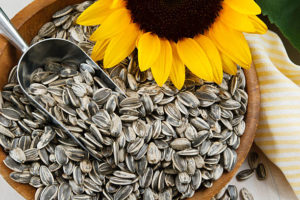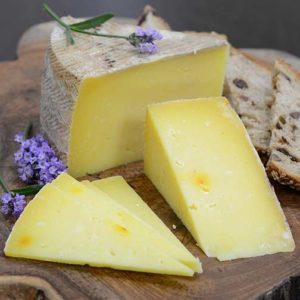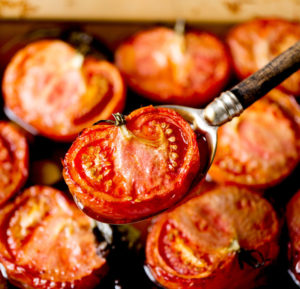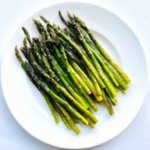Fertility has a profound connection with a healthy diet and the same fact has been proved by random research and observations across the globe. So, can we say that particular diets can help you become more fertile?
While no single food or fertility, diet will suddenly increase your chances of conceiving, a healthy and well-balanced diet can surely help men and women maintain general health, including reproductive health.
It’s crucial to note that many major diseases that cause infertility in women and men are unaffected by food choices. Dietary modifications, for example, will not unblock the fallopian tubes if the tubes are obstructed, preventing sperm from reaching an egg.
With that in mind, here are some nutritious whole foods that may help people looking to improve their reproductive health.
-
Sunflower Seeds

Sunflower seed kernels (must be roasted and unsalted) are high in vitamin E, an essential component that has been found to improve sperm count and motility in Men. Sunflower seeds are also high in folate and selenium, both of which are essential for male and female fertility. Sunflower seeds contain small levels of omega-3 fatty acids and are a good source of omega-6 fatty acids.
-
Citrus Fruits
Vitamin C is abundant in citrus fruits such as oranges and grapefruits. Grapefruits and oranges contain polyamine putrescine, which has been linked to improved egg and sperm health in animal studies. Yet, one must consult with their doctor or fertility expert to check about the recommended serving and portion size.
-
Aged Cheese
 Aged cheddar, parmesan, and manchego cheeses, for example, may help sperm health. Polyamines are abundant in mature cheeses. Polyamines are a type of protein that can be found in both plant and animal sources. They are also found in humans naturally.
Aged cheddar, parmesan, and manchego cheeses, for example, may help sperm health. Polyamines are abundant in mature cheeses. Polyamines are a type of protein that can be found in both plant and animal sources. They are also found in humans naturally.
Polyamines have been shown to serve a crucial role in the reproductive system, according to research by famous IVF treatment clinic in UK.
The research affirmed that aged cheese contains a large amount of polyamine putrescine, which may help sperm health. Putrescine is also thought to improve egg health, particularly in women over 35.
-
Dairy Products (Full Fat)
For those who are not allergic to it, full-fat dairy is an excellent choice for fertility and pregnancy. Dairy has a lot of saturated fat, which is good for fertility. It’s also high in fat-soluble vitamins including A, E, D, K, and K2, as well as potassium.
According to research done on individuals undergoing IVF treatment in UK, women who ate full-fat dairy products were less likely to have ovulation issues than those who ate mostly low-fat dairy products.
Skimmed or low-fat milk, sherbet, yogurt, and cottage cheese were all considered low-fat dairy products in this study. Whole milk, ice cream, cream cheese, and other cheeses were examples of full-fat items.
-
Cooked Tomatoes
 Tomatoes are abundant in lycopene, a powerful antioxidant that can help you become more fertile. Lycopene’s possible effect in enhancing male fertility has been thoroughly researched. Supplementing with lycopene has even been investigated as a viable therapy for male infertility.
Tomatoes are abundant in lycopene, a powerful antioxidant that can help you become more fertile. Lycopene’s possible effect in enhancing male fertility has been thoroughly researched. Supplementing with lycopene has even been investigated as a viable therapy for male infertility.
Consuming 4 to 8 mg of lycopene per day for 8 to 12 months improved sperm quality and increased conception rates, according to one study. While IVf treatment cost in UK is quite high, one can really count on such low-cost fertility boosting food items to increase their conception chances naturally.
-
Lentils & Beans
Beans and lentils are high in fiber and folate, which are both important for maintaining a healthy hormonal balance. Lentils also have a high concentration of polyamine spermidine, which may aid sperm fertilization.
Lentils and beans are also high in protein, which can aid in ovulation health. According to studies conducted on people pursuing IVf treatment in the UK, consuming 5% of calories from vegetable protein rather than animal protein (especially chicken and red meats) reduces the risk of infertility owing to anovulation by over 50%. 8
-
Asparagus
 Asparagus is an extremely nutrient-dense superfood. It’s low in calories, filling, and provides a boost of fertility-boosting nutrients. You’ll get your entire daily intake of vitamin K, 60% of your daily value of folate, and more than 20% of other key nutrients including vitamin A, vitamin C, and the B vitamin thiamin in one cup serving.
Asparagus is an extremely nutrient-dense superfood. It’s low in calories, filling, and provides a boost of fertility-boosting nutrients. You’ll get your entire daily intake of vitamin K, 60% of your daily value of folate, and more than 20% of other key nutrients including vitamin A, vitamin C, and the B vitamin thiamin in one cup serving.
Conclusion
All these superfoods have proved their significance as a fertility-boosting food alternative in random research. Yet, you must consult with your fertility expert or physician for any recommendations regarding the portion or serving size.
 Hebrew
Hebrew Arabic
Arabic German
German




